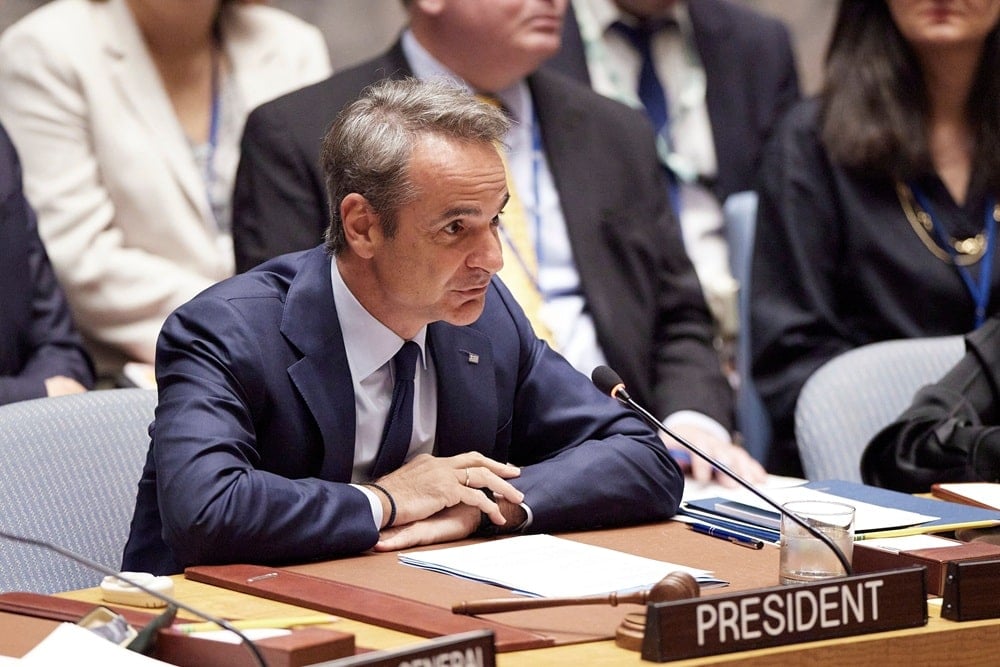

Greece’s Prime Minister Kyriakos Mitsotakis reaffirmed the country’s commitment to safeguarding free sea navigation during a high-level discussion on maritime security, held as part of Greece’s presidency of the UN Security Council.
“I pledge that Greece will remain a guardian of free navigation, in cooperation with all United Nations member states, and we will work together toward this very important and vital goal,” Mitsotakis said. He also expressed his gratitude for the participation of UN Secretary-General António Guterres, who took part in the discussion.

The prime minister said that threats to maritime security are global in nature and affect all nations – regardless of whether they have coastlines, highlighting the vital role of shipping in maintaining global supply chain security, as over 80% of world trade is transported by sea.
“Maritime security promotes political and economic stability, sustainable development, and the prosperity of nations,” he said while also cautioning against the growing risks posed by asymmetric and hybrid threats.
“We need global solutions. Only through coordinated international action – by states, institutions, and the private sector – can we effectively respond to these challenges,” he said.
UN Secretary-General Antonio Guterres warned Tuesday of rising threats to maritime transport, which is important for global security.
“Without maritime security, there can be no global security. But maritime spaces are increasingly under strain from both traditional threats and emerging dangers: from challenges around contested boundaries, to the depletion of natural resources at sea, to escalating geopolitical tensions fanning the flames of competition, conflict and crime,” Guterres told a UN Security Council meeting headed by Mitsotakis.

Guterres said the first quarter of 2025 saw a “sharp upward reversal” in reported piracy and armed robbery at sea.
According to the International Maritime Organization (IMO), he said, reported incidents rose by nearly half, 47.5 percent compared to the same period in 2024.
“In the Red Sea and Gulf of Aden, attacks by the Houthis on commercial vessels have disrupted global trade and increased tensions in an already volatile region.
“The Gulf of Aden and the Mediterranean Sea remain treacherously active routes for migrant smuggling and the trafficking of weapons and human beings,” he said.
The UN stands ready to continue to support countries in ensuring “peaceful, secure and prosperous” maritime spaces for generations to come, Guterres stressed.
“Let’s take action to support and secure maritime spaces, and the communities and people counting on them,” he added.
Greece assumed control of the rotational presidency of the UN Security Council from France on Thursday for the month of May.
Greece’s UN envoy, Evangelos Sekeris, said at a news conference that the focus will be on maritime security and the protection of civilians in armed conflicts.
The election of Greece as a non-permanent member of the United Nations (UN) Security Council for 2025-2026 is a truly significant moment in the nation’s diplomatic history.
With the support of a staggering 182 countries, Greece assumed its seat at the dawn of 2025, a very important and critical time in global affairs with nationalism on the rise and regional conflicts and wars still ravaging Eastern Europe and the Middle East.
